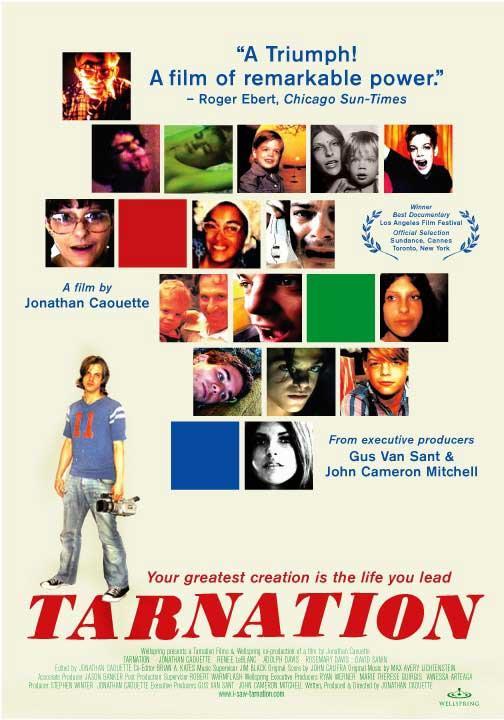Tarnation

TARNATION is thirty-one year old director Jonathan Caouette’s inspiring documentary self-portrait, chronicling his chaotic upbringing in a dysfunctional Texas family and the unexpected relationship that develops with his mentally-ill mother Renee. The film begins with the early history of Caouette’s family. His grandparents, Adolph and Rosemary, were married in 1951 and experienced a middle-class life in a Houston suburb. But their idyllic early years quickly disintegrate after they opt to incarcerate their beauty-queen daughter Renee, who undergoes shock therapy after a suspected mental condition is diagnosed. Renee¹s personality is severely compromised after two years of treatment, resulting in a tortured life of mental illness, physical abuse, and a seemingly endless series of hospitalizations. Her saving grace arrives in the form of her son, Jonathan, born in 1972. As Jonathan grows up on camera over a two-decade span, he forges an unbreakable, often heartbreaking bond with Renee, discovering along the way his own personal difficulty - depersonalization, an affliction involving feelings of detachment from one¹s own body or thoughts. Using filmmaking and self-documentation as a means of escape and salvation, Jonathan eludes his harsh existence through the safe, controlled world of cinema and make-believe. He becomes enthralled with underground movies, musical theatre and alternative gay culture, and yearns for the day when he can escape Texas and make a life of his own. As a young adult Jonathan migrates to New York City and finds a secure, loving home with boyfriend David Sanin Paz. His relationship with Renee grows even deeper after a lithium overdose requires sacrifice, compassion and an outpouring of love. Included in TARNATION are fragments from Caouette’s personal collection of photographs, home movies, audio recordings, video diaries, answering machine messages, Hollywood movie clips, pop music samples and excerpts from his own short films. While undeniably a documentary at heart, TARNATION mines a greater terrain, serving up a history of late twentieth century popular culture and family life that plays out like a collective fever dream. Caouette’s devastating yet hopeful vision becomes a haunting and beautiful examination of the restless soul of America.